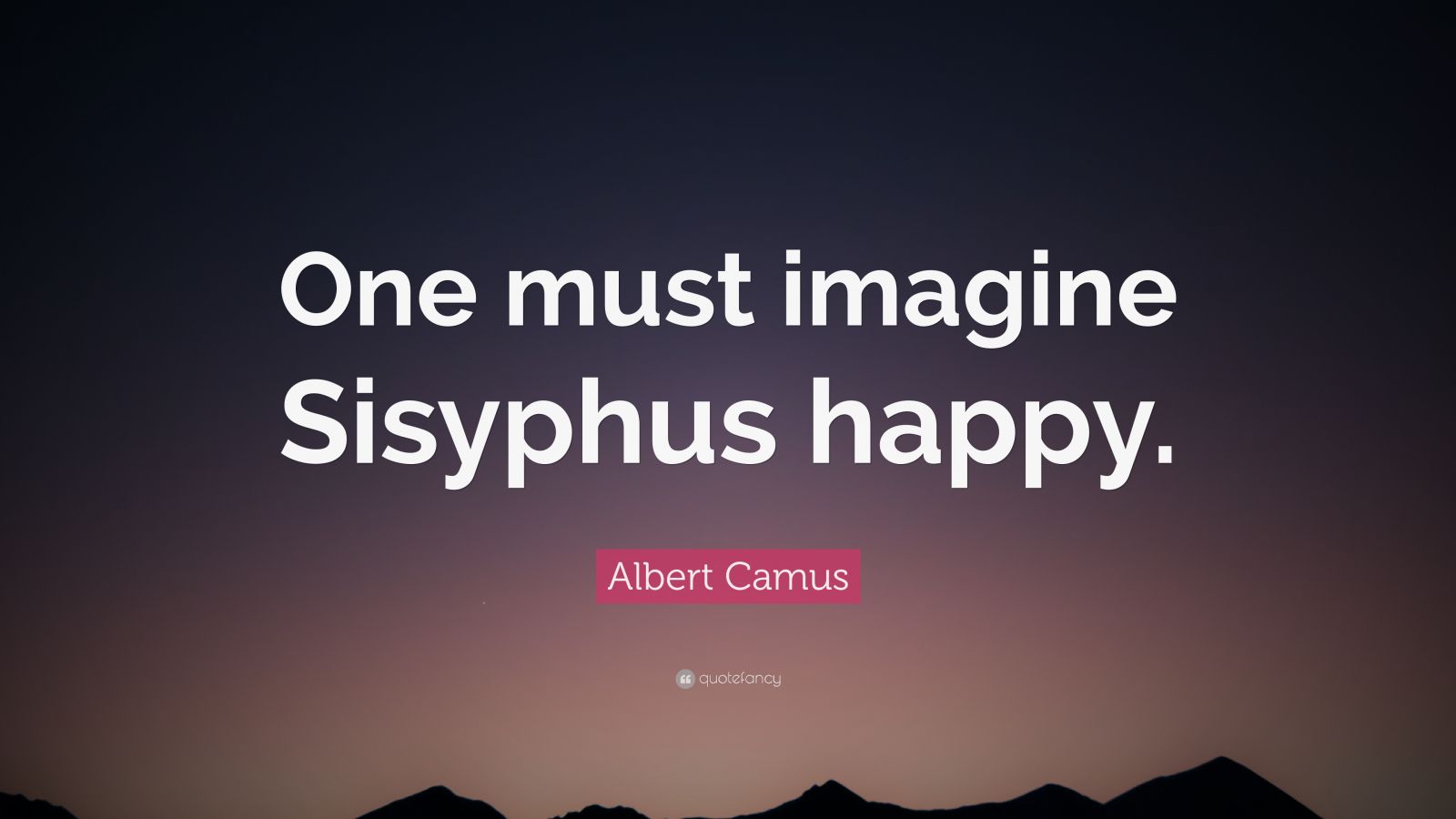

In the Bible, Ecclesiastes, we find the phrase “there is nothing new under the sun” and people often state that all the stories it is possible to tell have been told. Worse than that, there is a sense in which many feel that even what they do with their lives has been done before. It’s been happening for hundreds of years. After all, the repetition Sisyphus is engaged in is similar to the kind of repetition we are all engaged in.

Yeah, life! Under this reading it isn’t just that Sisyphus’s existence is meaningless, but that life just generally is pointless. Because this myth has been and can be treated as an allegory for life. Doesn’t sound too happy so far.Īnd it gets worse. So, he is the author of his own empty life in virtue of his consciousness. His awareness of its meaninglessness makes it meaningless. It’s because Sisyphus knows that what he is doing is futile that he feels its futility acutely. The implication seems to be that, if Sisyphus were not acutely self-conscious of the futility of the repetition he is forced to participate in, then things wouldn’t be so bad. What would his torture be, indeed, if at every step the hope of succeeding upheld him?” (Pg. “If the myth is tragic it is because the hero is conscious. There is another reason to think the answers to the above questions should be ‘no’. But after that, it just isn’t so impressive or important. After all, what is the point of doing something we’ve already done before. And it’s often not seen as very meaningful. There are a lot of reasons to think that the answer to these questions is ‘no’. So, in doing so have we just tripled our agony? Is Sisyphus happy? And are we? So, if you’ve been keeping up, we are repeating a text that repeats a myth that is about the agony of repetition.

I choose this text as an introduction to the Arts One 2013-2014 ‘Remake/Remodel’ theme, because the text repeats a myth about repeating. (Not to get too self-conscious, but it is being revisited right now, as I write this). Not only does he examine Sisyphus–a figure condemned to repeat the same task over and over–but his examination itself is a revisiting of a text that has been revisited before, and will, no doubt, be revisited again. 492)? How can one imagine Sisyphus happy?Ĭamus’ 1942 essay, The Myth of Sisyphus, is itself an exercise in repetition. So then why does Albert Camus say that “One must imagine Sisyphus happy” (Pg. Worse than that, it is meaningless repetition.
#We must imagine sisyphus happy series#
His life is an endless series of repetition. Sisyphus is cursed by the gods to roll a boulder up a mountain, watching it come crashing down, walk back down the mountain after it, and roll the boulder up again. They had thought with some reason that there is no more dreadful punishment than futile and hopeless labor.” (Camus, Pg. “The gods had condemned Sisyphus to ceaselessly rolling a rock to the top of a mountain, whence the stone would fall back of its own weight.


 0 kommentar(er)
0 kommentar(er)
